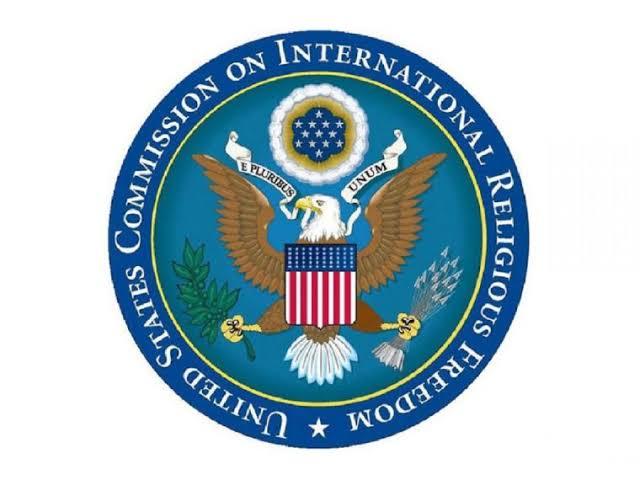

THE United States Commission on International Religious Freedom, USCIRF, has declared that blasphemy laws in Nigerian criminal and Shari’a codes undermine the country’s strong legal protections for freedom of religion.
The Washington DC based organisation, in a study carried out during a visit made to Nigeria in June 2022 estimates that approximately 53.5 percent of the country’s roughly 225 million people identify as Muslim and 45.9 percent as Christian, while the remaining 0.6 percent (1.3 million people) reportedly identify as Baha’i, Jewish,
Hindu, Buddhist, humanist or nontheist, or practitioners of traditional or indigenous religions.
It said though the Nigerian constitution prohibits the federal and state governments from adopting a state religion and provides a strong legal foundation for the protection of freedom of religion or belief, it also allows for allows for legal pluralism at the federal and state levels, including high courts of appeal, customary courts of appeal, and Shari’a courts of appeal.
Article 38, in similar language to the International Covenant on Civil and Political Rights (ICCPR), affords every Nigerian the right to “freedom of thought, conscience and religion, including freedom to change his religion or belief, and freedom (either alone or in community with others, and in public or in private) to manifest and propagate his religion or belief in worship, teaching, practice and observance.”
Despite this, the Nigerian Criminal Code (applied in southern states), Penal Codes (applied in northern states) and Shari’a Codes (applied in 12 northern states) include laws criminalizing blasphemy, with sentences including significant prison time and even the death penalty in some cases.
Citing the May 2022 stoning to death of Deborah Emmanuel at the University of Sokoto over comments she made on a campus WhatsApp group , the document cites reports revealing that within the first two decades of the millennium, incidents of mob violence in response to alleged blasphemy have erupted in Kaduna, Abuja,
Bauchi, Borno, Katsina, Gombe, Kano, and Jigawa states, owing largely to a lack of political will.
Also citing the cases of Rhoda Jatau, a Healthcare worker and Christian mother of 5 in Bauchi state reportedly charged under the State Penal Code and federal cybercrimes law with inciting a public disturbance, exciting contempt of religious creed, and cyber stalking, the report said the tendency for mob violence remains high.
“Some local officials have publicly condemned violence and incitement against individuals accused of blasphemy; however, robust legal action against those engaging in violence rarely accompanies these efforts. Despite that incitement to violence is criminalized, there is little evidence that individuals who incite such violence are prosecuted.
Other victims, all from Northern Nigeria, include Ahmad Abdul, Yahaya Shariff Aminu, Ismaila Isa and Mubarak Bala, who are all serving various jail terms.
In conclusion, the report makes various recommendations, stating, ” Given the negative impact of the enforcement of these blasphemy laws on freedom of religion or belief for Nigerians, the U.S. government should designate Nigeria as a Country of Particular Concern (CPC) for engaging in and tolerating particularly severe religious freedom violations. The U.S. government should also appoint a Special Envoy to Nigeria and the Lake Chad Basin to prioritize addressing religious freedom challenges in U.S. foreign policy in the region “
USCRIF further suggested that the United States government should lend technical, diplomatic and financial support to the Nigerian civil society community in the hosting of a multi year national dialogue on implementing UNHRC Resolution 16/18 and promoting religious freedom while safeguarding freedom of expression.
The body further recommended U.S. officials in Nigeria to urge national, state and local legislative authorities to criminalize false blasphemy accusations and other fraudulent manipulations of existing blasphemy laws to deter individuals from using blasphemy laws to exact revenge on those with whom they disagree;
prosecute individuals who perpetrate or incite violence against individuals accused of blasphemy; and enforce an official policy eliminating prison time and allowing bail for non-violent defendants charged with blasphemy; as well as disallowing evidence from virtual platforms to be used in cases against alleged blasphemers.
|